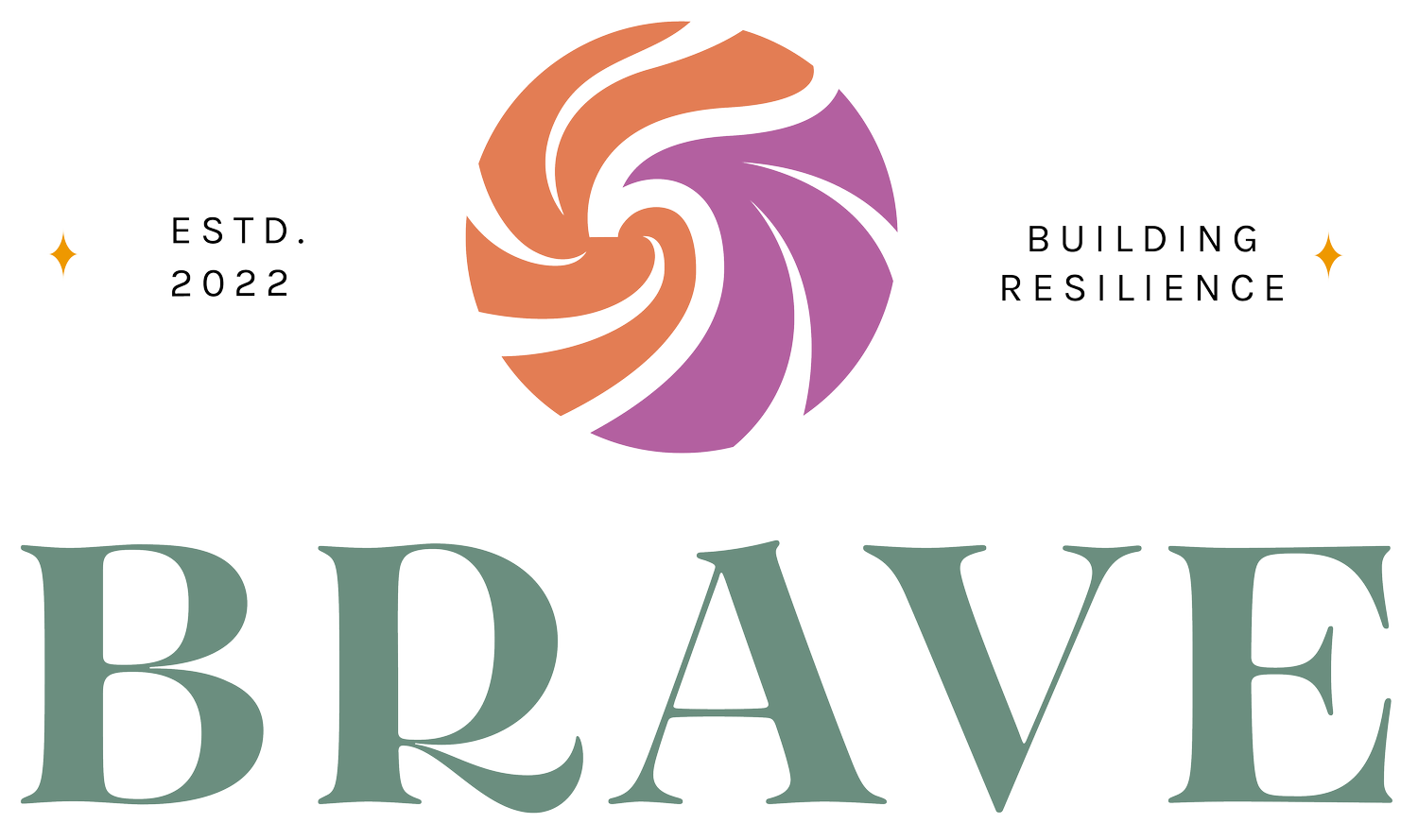Why Equity Matters for Trauma Therapists: Building Sustainable, Supportive Careers
When equity is missing in trauma therapy, it doesn’t always look loud or dramatic. More often, it looks like brilliant, compassionate trauma therapists quietly leaving the work they love—not because they can’t handle the weight of the stories they hold, but because the systems around them make it almost impossible to stay.
In BRAVE, we talk often about the importance of equity—not as a buzzword, but as a real, structural support that sustains trauma therapists and strengthens entire communities.
Today, we’re talking about why equity matters so deeply in our field and how you can start building it, right now.
What Happens When Equity is Missing
When equity is missing in trauma therapy, the costs are immediate and long-term. Trauma therapists step away from the work they love—not because of the vicarious trauma itself, but because they’re navigating barriers that shouldn’t be there in the first place.
Barriers related to their cultural and religious backgrounds for example. Or because of where they live or the access (or lack thereof) they have to mentors who can continue to lift them up.
Without equity, trauma therapists face:
Professional isolation
Financial strain and lack of access to training
Emotional exhaustion from carrying systemic burdens alone
And when trauma therapists leave the field, their absence is felt far beyond their own careers. Clients lose access to care from professionals who share their lived experiences. Communities lose trauma-informed support. And the entire field becomes less sustainable, less diverse, and less equitable.
What Equity Actually Means in Trauma Therapy
Let’s be clear: equity is not the same as equality.
Equality means everyone gets the same thing. Equity means every trauma therapist receives the specific resources, access, and community support they need based on their unique barriers and circumstances.
For trauma therapists, equity looks like:
Affordable access to advanced training and continued education
Emotional, professional, and peer support that validates lived experiences
Connected, affirming communities where therapists can show up fully as themselves
Equity isn’t extra—it’s essential. Without it, trauma therapists are asked to carry the weight of the world without the tools or community they need to keep going.
How Equity Transforms Our Work and Communities
When equity becomes a priority, the difference is transformational.
For trauma therapists, equity means having a career they can sustain without constantly teetering on the edge of burnout. It means being supported, valued, and connected—not despite their unique identities and lived experiences, but because of them.
Equity for trauma therapists means being able to continue doing the trauma therapy work they care so deeply about, without sacrificing their wellbeing or feeling like they have to choose between their needs and their clients'.
But the benefits extend far beyond trauma therapists themselves.
Clients and communities thrive when trauma therapists from diverse backgrounds are supported and sustained. Clients gain access to professionals who understand their cultural, geographic, religious, and lived experiences. Therapeutic relationships grow stronger.
Healing becomes more accessible.
I’ve seen firsthand how equity transforms not just careers but entire communities. When therapists are resourced, connected, and supported, they move from feeling isolated and unsure to confident, capable, and energized—and that energy ripples outward.
How You Can Build Equity—Starting Today
Equity can feel like a BIG, systemic issue—and it is, more so than ever! But the truth is, it starts and then grows through small, intentional actions.
Here are ways you can start building equity today:
Start by intentionally connecting with your peers. Equity thrives when communities are strong and genuinely interconnected.
As your immediate community strengthens, you can work together to advocate within your larger organizations—whether it’s speaking up for equitable policies, requesting funding for training, or ensuring culturally-responsive resources are prioritized.
And most importantly, engage in personal practices that model equity. Mentor a new trauma therapist. Share resources. Offer validation and support when you see another therapist struggling.
In The BRAVE Trauma Therapist Collective, we embody these steps every day. We know this isn’t about perfection. It’s about the willingness to show up, make mistakes, and work through ruptures together—because without that permission, we freeze in fear. And when we move forward together, equity grows.
Next Steps
Equity isn’t optional in trauma therapy. It’s how we build sustainable careers, serve our clients with integrity, and create communities where no trauma therapist has to carry the weight of this work alone.
If you’re ready to take a meaningful step towards equity in your own practice, I have something for you. One of the most powerful ways to show your commitment to equity is by creating an Anti-Racism & Anti-Oppression In All Forms Statement—not just as a document, but as a guiding principle for how you show up as a therapist.
My colleague, Tawanna Marie Woolfolk, and I have created a free workbook to help you craft a statement that aligns with your values and creates a real impact in your work.
Grab your free workbook here.
Every intentional step you take helps dismantle barriers, strengthens our professional community, and creates a foundation of equity, resilience, and empowerment for trauma therapists everywhere.
Let’s make equity a living practice—starting today.





